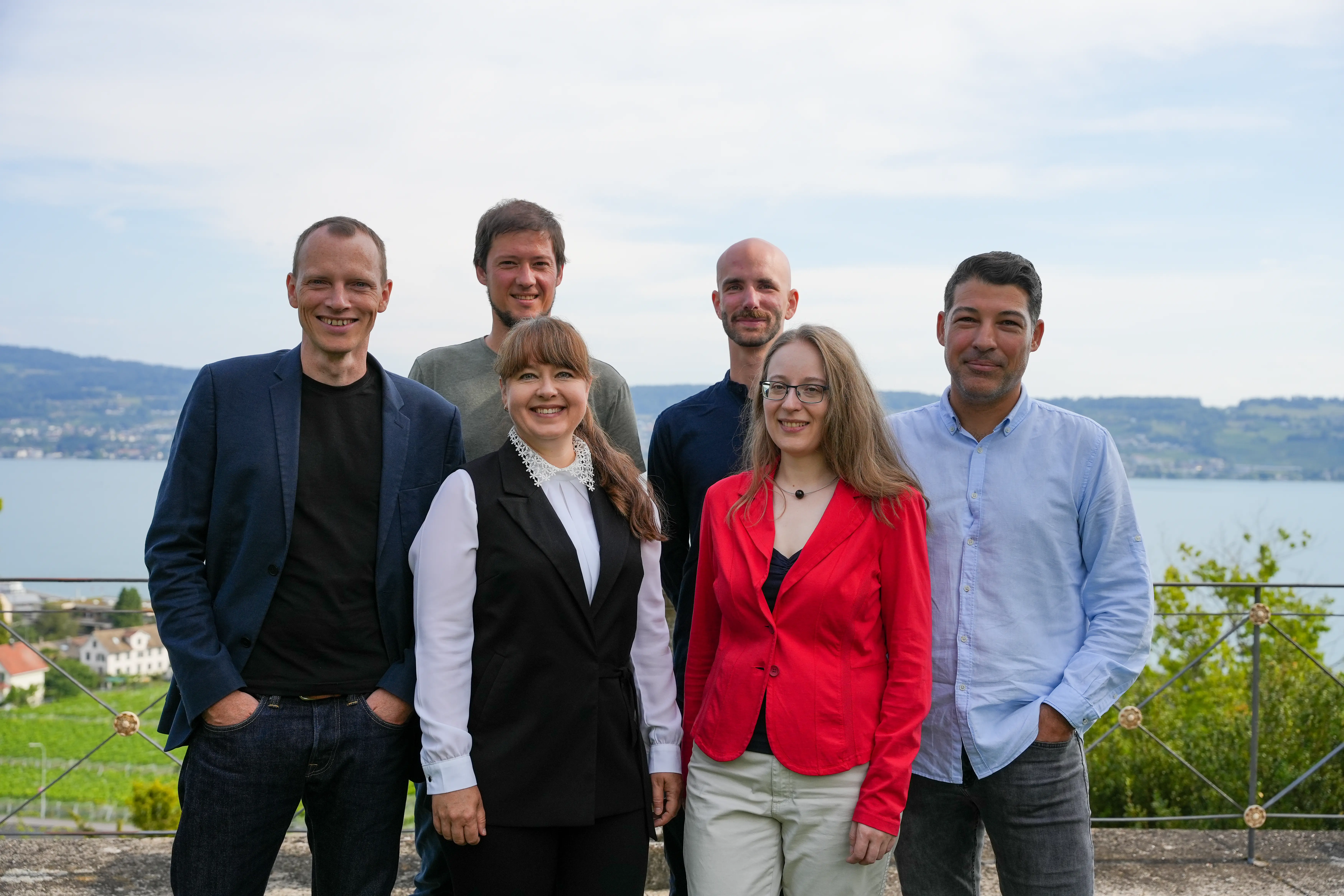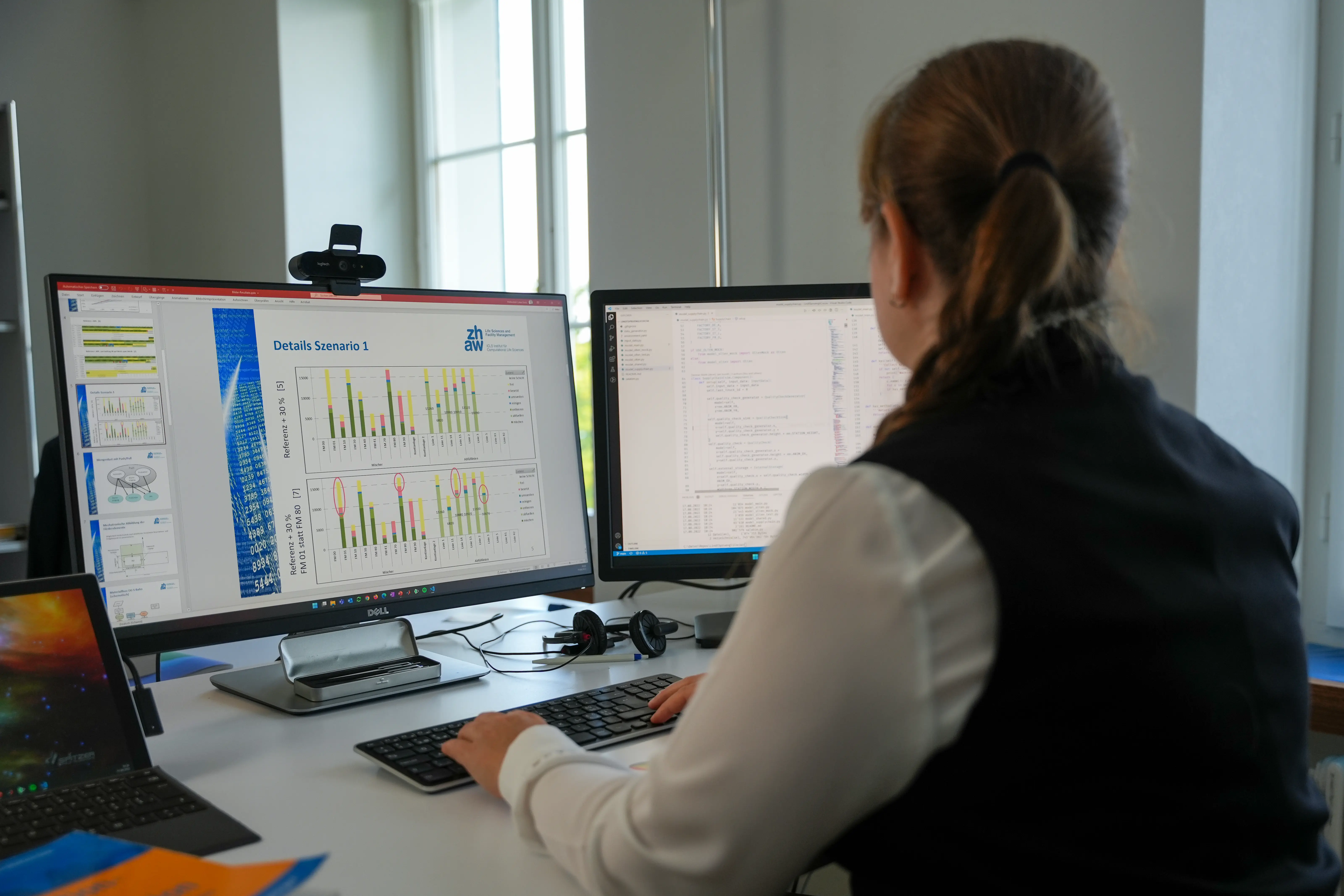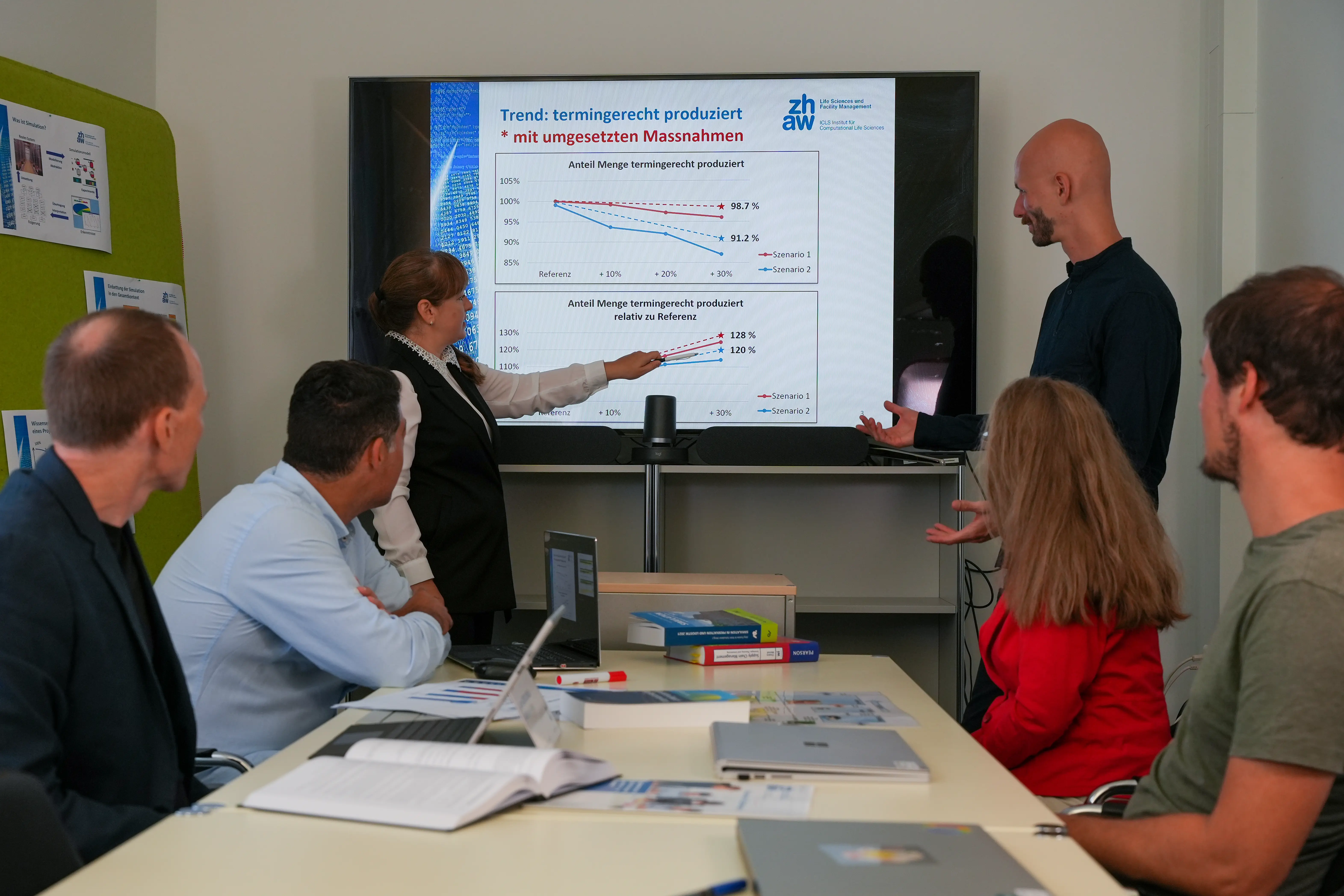Simulation & Optimization Research Group

Why we simulate
Markets, company structures and processes are not only complex, but are also changing ever more rapidly. Shorter cycles require rapid redesign and adjustment of internal and external structures and dependencies.
Our applied research transfers the newest methods from theory to practice. This enables us to develop individual and innovative solutions with our partners.
We enable you to recognize potential for rationalization and quantify it more effectively. We also help you achieve better understanding and control of dynamic and complex processes. Your planning quality improves significantly as we support you in asking the correct questions.
Thanks to user-friendly simulation tools, you can easily change your system parameters whenever necessary. In this way you adopt the best possible solution to your problem efficiently and without risk.
Motivation

We all want to
- use resources efficiently
- avoid risks
- disentangle processes
- understand dependencies
- work out quantified (and qualified) bases for decisions
«We achieve your goals innovatively and sustainably at the interface of research and practice.»
Vorgehen

We support you by
- analyzing your complex processes and systems
- reducing intricate relationships to the essentials
- developing dynamic models
- visualizing processes
- using optimization methods
«We solve complex problems through simulation and optimization.»
Benefits

Your benefits from our projects:
- analysis of your current situation and recommendations for action
- simulation models to quantitatively support your decisions
- visualizations for a better understanding of processes
- tools to support strategic and operational planning and innovative solutions
«We experiment with you in the simulator to find a predictable and economically viable reality.»
Projects
Since 1991, the research group has implemented more than 300 projects in the fields of plant and mechanical engineering, the food and chemical industries, hospital logistics and medical technology, road and air traffic, people flow, services and the military. We are proud to present some of our reference projects.
Unfortunately, no list of projects can be displayed here at the moment. Until the list is available again, the project search on the ZHAW homepage can be used.
Current publications
-
Hollenstein, Lukas; Busin, Adrian; Derman, Melih,
2020.
Simulation & optimization needs high performance.
Transfer.
2020(2), pp. 5.
Available from: https://doi.org/10.21256/zhaw-21455
-
Brunschwiler, Marco; Hollenstein, Lukas; Müller, Julia,
2020.
Automatisierte Modellierung der mikrobiologischen Sicherheit von Rezepturen.
Lebensmittel-Industrie: Fachmagazin für das Management der Nahrungsmittel- und Getränkeindustrie.
2020(5/6), pp. 18-19.
Available from: https://doi.org/10.21256/zhaw-20194
-
Hollenstein, Lukas; Rinkel, Andreas,
2020.
Komplexe Dynamik mit Data Science und Simulation beherrschen.
Logistics Innovation.
2020(2), pp. 42-44.
Available from: https://doi.org/10.21256/zhaw-21453
-
Vorburger, Robert; Hollenstein, Lukas,
2019.
Virtuell Schäumen : Simulieren und Visualisieren.
Transfer.
2019(2), pp. 6.
Available from: https://doi.org/10.21256/zhaw-18853
-
Starostina, Tatiana; Hollenstein, Lukas,
2019.
Logistik mit Simulation sicher planen und optimieren.
Lebensmittel-Industrie: Fachmagazin für das Management der Nahrungsmittel- und Getränkeindustrie.
2019(11/12), pp. 14-15.
Available from: https://doi.org/10.21256/zhaw-20245